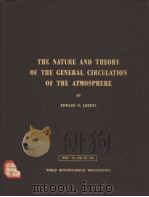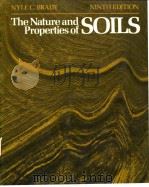《THE NATURE AND SOURCES OF THE LAW》
| 作者 | JOHN CHIPMAN GRAY SECOND EDITI 编者 |
|---|---|
| 出版 | THE MACMILLAN COMPANY |
| 参考页数 | 348 |
| 出版时间 | 1924(求助前请核对) 目录预览 |
| ISBN号 | 无 — 求助条款 |
| PDF编号 | 813301568(仅供预览,未存储实际文件) |
| 求助格式 | 扫描PDF(若分多册发行,每次仅能受理1册) |
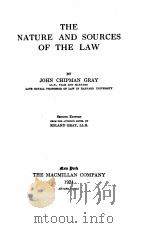
PART ⅠNATURE OF THE LAW1
INTRODUCTION1
Analytic study of legal conceptions1
Classification and definition3
Value of concrete instances4
CHAPTER ⅠLEGAL RIGHTS AND DUTIES7
Rights and duties in general7
Ambiguity of word "right"8
Relation of public opinion to rights9
Legal rights and duties12
Legal and moral rights12
"Legal duty"15
The term "just"16
Protected interests and rights17
Ways of protecting interests19
Right to a defence20
Intervention of administrative officers22
Free will and legal rights23
Free will and legal duties24
CHAPTER ⅡLEGAL PERSONS27
The term "person"27
Normal human beings28
Abnormal human beings29
Fictions in the Law30
In the Common Law31
Disuse of fictions35
Dogmatic fictions36
Attribution of will to abnormal human beings37
Unborn children38
Supernatural beings39
Animals as having rights42
Animals as subject to duties44
Inanimate things as having rights46
Inanimate things as subject to duties46
Juristic persons49
Corporations50
Is a corporation a real thing?52
Has a corporation a real will?54
Creation of corporations56
Corporations sole57
Stiftungen58
The fiscus60
Hereditas jacens61
Ihering's doctrine of passive rights61
CHAPTER ⅢTHE STATE65
The State an artificial person65
Creators of the State67
Power of the State69
Theory of divine origin of the State70
"Might is right"71
The social contract72
Sovereignty74
In the United States76
Idea of a Sovereign unnecessary79
Legal rights of the State79
Partial exercise of power to create rights81
CHAPTER ⅣTHE LAW84
Definition of the Law84
Law as the command of the Sovereign85
"A Law" and "The Law"87
Law in the consciousness of the people89
Opinions of jurists90
Judges as discoverers of the Law93
Only what the Judges lay down is Law93
Questions not previously decided96
No Law previous to decision98
Courts make ex post facto Law99
Law and the Natural Sciences101
Decisions as conclusive evidence of the Law101
Law distinguished from other rules for conduct104
The Law not always obeyed105
The Law consists of rules made by the State107
Laws of bodies other than the State108
The Church of England109
General administrative rules are laws110
CHAPTER ⅤThe Coubts113
Office of a Judge113
Power to enforce decisions not essential115
Difference ot opinion between courts116
Independent coordinate courts118
Independent courts for different matters118
Courts with limited right of appeal119
Limits of judicial power121
Indication of sources of Law123
Statutes as a source of Law124
CHAPTER ⅥTHE LAW OF NATIONS128
Relation between nations126
"International Law"127
"Private International Law"128
Is International Law really Law?130
Law in becoming131
CHAPTER ⅦJUBISPBUDENCE133
Particular Jurisprudence133
Comparative Jurisprudence134
General Jurisprudence135
Supposed necessary principles of Law136
Deontological or ethical element139
Ethical element necessary141
Ethical element in Comparative Jurisprudence143
Jurisprudence as a purely formal science144
Essence of Jurisprudence is method147
Principles common to two systems148
Historical Jurisprudence150
PART ⅡSOURCES OF THE LAW152
CHAPTER ⅧSTATUTES152
Legislatures152
Various designations of statutes153
Rules of bodies other than the State155
"Autonomy" in German Law158
Form of statutes159
Generality of statutes161
Foreign statutes162
Enactment of statutes: Civil Law162
English Law167
In the United States168
Interpretation of statutes170
The Judge has the last word171
Legislative intent frequently non-existent172
Rules of construction for deeds and wills173
Methods of interpretation of statutes176
Rules of the Common Law178
Interpretation of the Twelve Tables180
Power of courts over statutes181
When amendment is difficult, interpretation is free183
Interpretation of compilations186
Legislative interpretation187
Desuetude of statutes189
Civil Law190
Common Law193
English statutes in America196
Desuetude of statutes in the United States197
CHAPTER ⅨJUDICIAL PRECEDENTS198
Precedents in general198
Judicial Precedents as sources of Law200
Roman Law200
German Law205
French Law210
Scotch Law210
English Law211
The Year Books213
Early reporters215
Decisions in same or coordinate court216
House of Lords bound by its own decision217
Decision in higher court217
Are decisions sources of Law?218
Blackstone's theory219
Historically judges make Law224
Consequences of Blackstone's theory226
Municipal bond cases227
Sense in which rule must exist before decision230
Decisions often change the Law231
Mr. Carter's theory233
Judge-made Law and the Sovereign233
Law as created by custom235
Often no custom before decisions236
Part played by individual judges239
CHAPTER ⅩJUDICIAL PRECEDENTS IN THE UNITED STATES241
Decision in same or coordinate court241
No court bound absolutely by its own decision242
Decision in higher court243
Decision in another State243
English decisions244
Decisions as sources of Law: Federal and State Courts248
Swift v. Tyson251
Inconsistent with any theory254
Municipal bond cases256
CHAPTER ⅪOPINIONS OF EXPERTS260
Opinions of experts as sources of Law260
Obiter dicta of Judges261
Text writers262
Comparative weight of different jurists: In the Civil Law263
In the Common Law266
Necessity of some authority besides statutes267
Comparison of the Civil and the Common Law268
Practical differences of method272
Dangers of imaginary cases276
Multitude of theories in the Civil Law278
Advantages of judicial decisions as authorities279
Increasing importance of the jurist280
CHAPTER ⅫCustom282
Custom as a source of Law282
Mr. Carter's view283
Custom is not opinion285
Morality rather than custom the guide287
Adjective Law independent of custom291
Custom important: In interpretation292
In questions of negligence293
Judicial decisions most frequently lie at origin of Law294
Miners' customs296
Custom often arises from judicial decisions297
Custom as evidence of the Law299
Decisions often independent of custom300
CHAPTER ⅩⅢMORALITY AND EQUITY302
Morality a necessary source of Law302
Scope of term "morality"303
Morality as a topic for Jurisprudence303
The test of morality305
Equity307
Relation of Law to morality308
APPENDIX ⅠPII USUS IN THE LATEB ROMAN EMPIBE310
APPENDIX ⅡHEREDITAS JACENS315
APPENDIX ⅢReception of the Roman Law320
APPENDIX ⅣAutonomy325
APPENDIX ⅤDesuetude of Statutes in the United States329
1924《THE NATURE AND SOURCES OF THE LAW》由于是年代较久的资料都绝版了,几乎不可能购买到实物。如果大家为了学习确实需要,可向博主求助其电子版PDF文件(由JOHN CHIPMAN GRAY SECOND EDITI 1924 THE MACMILLAN COMPANY 出版的版本) 。对合法合规的求助,我会当即受理并将下载地址发送给你。
高度相关资料
-

- THE SOURCES OF LAW IN THE SWISS CIVIL CODE
- 1923 OXFORD UNIVERSITY PRESS
-

- 1991-1994 CHINA NATIONAL REPORT ON SEISMOLOGY AND PHYSICS OF THE EARTH'SINTERIOR FOR THE ⅩⅪTH G
- 1995 CHINA METEOROLOGICAL PRESS
-
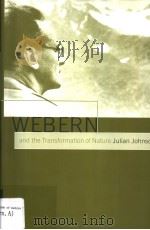
- WEBERN AND THE TRANSFORMATION OF NATURE
- CAMBRIDGE
-

- SHAKESPEARE AND THE NATURE OF WOMEN
- 1975 THE MACMILLAN PRESS LTD
-

- THE TWO SOURCES OF MORALITY AND RELIGION
- 1935 NEW YORK HENRY HOLT AND COMPANY
-

- THE NATURE OF VIRUSES AND THE ORIGIN OF LIFE
- 1955 IGAKU SHOIN COMPANY LIMITED
-
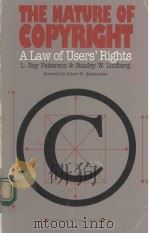
- THE NATURE OF COPYRIGHT A LAW OF USERS;RIGHTS
- 1991 THE UNIVERSITY OF GEORIGIA PRESS
-

- LAW AND THE STATE IN TRADITIONAL EAST ASIA SIX STUDIES ON THE SOURCES OF EAST ASIAN LAW
- 1987 UNIVERSITY OF HAWAII PRESS
-
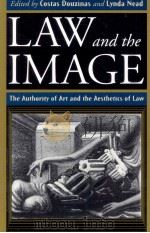
- LAW AND THE IMAGE THE AUTHORITY OF ART AND THE AESTHETICS OF LAW
- 1999 THE UNIVERSITY OF CHICAGO PRESS
-
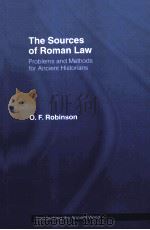
- THE SOURCES OF ROMAN LAW
- 1997 LONDON AND NEW YORK
-
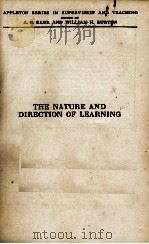
- THE NATURE AND DIRECTION OF LEARNING
- 1929 D.APPLETON AND COMPANY
-

- HILDEGARD OF BINGEN:HEALING AND THE NATURE OF THE COSMOS
- 1997 MARKUS WIENER PUBLISHERS
提示:百度云已更名为百度网盘(百度盘),天翼云盘、微盘下载地址……暂未提供。➥ PDF文字可复制化或转WORD

